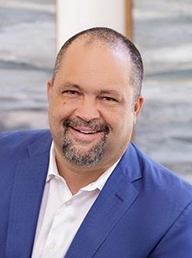By Ben Jealous
There’s a deep sense of despair settling over America. Families are working harder and falling further behind. The cost of raising children grows, while schools, housing, and healthcare remain out of reach for too many. It’s no wonder people across this country — rural and urban, Black and white — feel left behind and politically homeless.
But our past offers a powerful, largely forgotten story of how people once came together — across race and class — to put their children first. It happened in post–Civil War Virginia, through a political force called the Readjuster Party.
The Readjusters emerged in the late 1870s, when Virginia’s elites were insisting the state repay its massive pre-war debt in full — even if that meant closing schools and slashing public services. Poor and working-class families, Black and white, saw clearly what was at stake: the future of their children’s education. Public schools had been significantly expanded during Reconstruction, and they were now under threat.
In response, Black voters and white working people — farmers, laborers, veterans — formed the Readjuster coalition. Their message was simple but bold: public debt should be “readjusted” so that education and opportunity for all children could come first.
For a brief but impactful time in the 1880s, the Readjusters controlled Virginia’s state government. They raised public school funding, protected Black voting rights, and pushed for reforms that served the working class, not just the elite. It was one of the most successful examples of cross-racial, working-class solidarity in American history.
One of the leaders of this movement was Edward David Bland, a Black Reconstruction-era legislator from Petersburg. Elected to the Virginia House of Delegates in 1879, Bland was supported by both Black and white working-class voters — the kind of broad, grassroots coalition our politics rarely sees today. While in office, he championed public education and helped secure funding for Black schools and institutions. But his base was never just “the Black community” — it was the working people of Petersburg, Black and white alike, united by a shared demand for dignity and opportunity.
The Readjusters were eventually dismantled by a well-funded and racially charged backlash that ushered in Jim Crow. But the impact of their brief victory endures. Virginia’s public school system — now ranked among the strongest in the country — still benefits from the foundational reforms won by that movement.
Their story offers urgent lessons for today.
Too often, the struggles of poor white families are rendered invisible, while Black poverty is hyper-visible but rarely treated with empathy. Both distortions serve to divide people who might otherwise stand together. In a political environment designed to pit us against each other, the Readjusters remind us that it doesn’t have to be this way.
We can choose something better.
We can build a politics rooted in our shared concern for our children. We can refuse to let race be used to divide the working class, as it so often is, and instead invest in a future where every child — rural or urban, Black or white — gets a real chance at success.
The Readjusters weren’t perfect, and they weren’t permanent. But they proved what’s possible when people stop fighting each other and start fighting for each other. If they could do it — in the shadow of the Civil War — then surely, we can find the courage to do it again.

